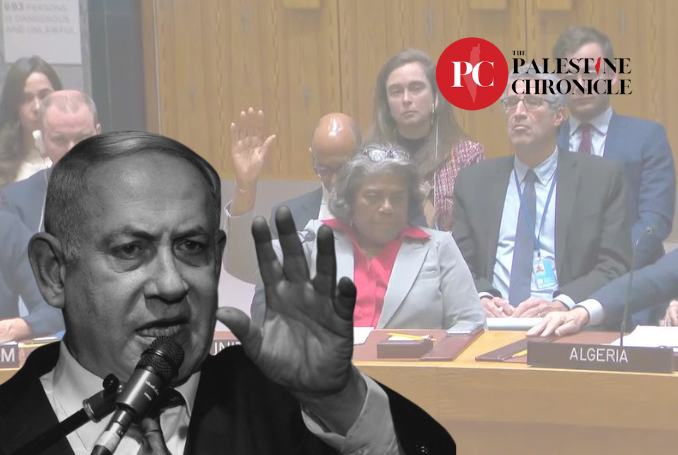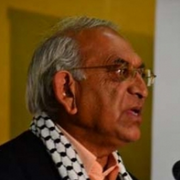
By Iqbal Jassat
As expected, the “ceasefire resolution” has got the world abuzz and, though Hamas has welcomed it by thanking the UN Security Council, the occupying regime is deeply unhappy and distressed by it.
In its statement, the Palestinian ResistAnce movement Hamas has called for a permanent ceasefire that “leads to the withdrawal of all Zionist forces from the Gaza Strip, and the return of the displaced to the homes from which they left”.
To demonstrate its commitment to comply, Hamas said it is willing “to engage in an immediate prisoner exchange process that leads to the release of prisoners on both sides”.
In addition, Hamas has called on the Security Council “to pressure the occupation to adhere to the ceasefire and stop the war of genocide and ethnic cleansing against our people”.
On the other hand, the war criminal Benjamin Netanyahu is fuming. His anger is reflective of the deep-seated vengeful characteristic of the racist Zionist ideology, responsible for the mass slaughter of Palestinians in what has outraged the world: the #GazaGenocide.
As the minutes were ticking at the Security Council, with member states seen huddling in groups before the session commenced, Netanyahu issued an ultimatum to Joe Biden: If you fail to veto it, I will cancel the trip of my envoys to you!
His threat failed dismally. The Biden Administration abstained instead of vetoing the resolution.
By not exercising its veto as it had done on three previous occasions, the resolution sailed through with the support of the balance of all 14 states.
The resolution demands an immediate ceasefire for the month of Ramadan respected by all parties leading to a lasting sustainable ceasefire, and also demands the immediate and unconditional release of “all hostages”, without conditioning it.
In other words, the resolution does not insist that for the ceasefire to kick in, “hostages” have to be released as a prior condition.
In contextualizing the legal obligations of member states to abide by UNSC resolutions, it is important to distinguish Hamas as a non-state Resistance movement engaged in a freedom struggle that is not a party to the UN Charter, whereas the apartheid regime of Israel is.
It means that the resolution is primarily directed at the Zionist entity by calling on it as a party to the UN Charter to comply with the ceasefire demand.
Hence, Hamas is perfectly correct to insist that the UNSC pressures the occupying regime to adhere to the ceasefire and stop the war of genocide and ethnic cleansing against Palestinians.
At the same time, while Netanyahu has been throwing tantrums, his Defense Minister Yoav Gallant is in Washington meeting US National Security Adviser Jake Sullivan.
The tension and policy differences between Netanyahu and Gallant have become messy and publicly known.
The Israeli newspaper The Times of Israel (TOI) reports that the public spat between the two follows in the wake of Netanyahu’s decision to cancel a trip for his top aides to Washington due to the Biden Administration’s refusal to veto the resolution.
According to TOI, Gantz believes that not only should the delegation set out for the US, but “it would have been good if the prime minister would travel to the US himself, and hold a direct dialogue with President Biden and senior officials.”
Netanyahu rejected the suggestion, in what’s turning out to be a circus or perhaps what many people would be inclined to believe that the colonial entity is indeed a banana republic.
A crisis between the two war lords as well as huge cracks in US/Israel alliance is a welcome development for Palestine’s resistance movements particularly Hamas, notwithstanding the fact that the Biden admin remains fully committed to Netanyahu’s criminal goals.
In his response on behalf of the Palestinian National Initiative (PNI), secretary-general Mustafa Barghouti is pretty forthright:
“The UN Security Council resolution for an immediate ceasefire is binding, and it dealt a blow to Netanyahu and his extremist and aggressive government, and sanctions must be imposed on it if it refuses to implement it.
“Although the decision was unbalanced with regard to the prisoners because it did not explicitly refer to the need to release thousands of Palestinian prisoners, it stressed the necessity of removing all ‘Israeli’ obstacles to the arrival of humanitarian aid to all areas of the Gaza Strip, which means the freedom for all displaced persons to return to their homes and areas where they abandoned it.”

– Iqbal Jassat is an Executive Member of the South Africa-based Media Review Network. He contributed this article to The Palestine Chronicle. Visit: www.mediareviewnet.com







